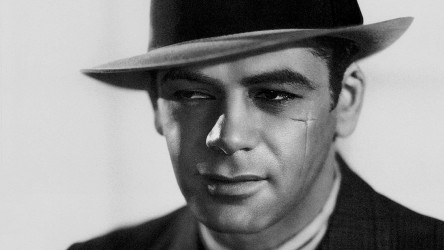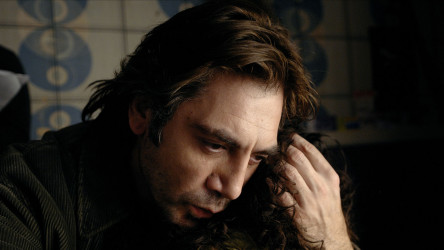The Godfather(1972)
Widely regarded as one of the best American films ever made, this gangster drama has become a constant in popular culture.
Certificate
Age group16+ years
Duration170 mins


In 1969 Dennis Hooper saved Hollywood from a decade of decay and neglect with ‘Easy Rider’ and this was followed by Bonnie and Clyde, The Wild Bunch, Straw Dogs, Dirty Harry, The French Connection, The Conversation, The Godfather Part II, Deliverance, The Exorcist, Apocalypse Now, A Clockwork Orange, Barry Lyndon, Chinatown, Mean Streets, Taxi Driver, Raging Bull and The Deer Hunter. These are among the all time greats of films and filmmaking, but what’s the best? I’ll tell ya’ll my homies, it’s The Godfather. Not only is The Godfather the best New Hollywood film, but the best film ever made by a human (that‘s including Chimpanzee‘s, Irishmen, higher primates and my pet cat). It excels in Gordon Willis’s moody lighting, Francis Ford Coppola’s subtle direction, realistic acting, perfect production design, tightly spun story and screenplay, and the haunting music. 'Mario Puzo’s The Godfather' is based on Mario Puzo’s novel 'The Godfather by Mario Puzo' (bet you’d never guess that) and frankly, the novel isn’t that good. It is over stuffed with detail and backstories and Puzo’s writing style is spare and simplistic (possibly to appeal to stupid people or shorten the book) and takes the most insane divergence in literary history from the main plotline by going with Sonny Corleone’s lover goes to Las Vegas and having um… ‘surgery’. The violent parts of the book are also disjointed and overlong and really only cinema can depict violence properly (a) because it can use editing, music and special effects to demonstrate the act and (b) it is strangely stimulating to watch, well that may just be confined to me and the Manson family so lets move on. Really the book wasn’t great, but listening to directors commentary showed that Francis Ford Motors Coppola had been able to cut out the fat without being underweight and left the good gangster story at the films heart while keeping some of the human elements that let us warm to the characters and culture resulting in a slim, but curvy hourglass figure of a story with very nice *999* (please read upside down for the rest of the description). The films greatest achievement is to weave the story strands, often miles apart in tone and content, together such as inter-cutting from Michael Corleone standing godfather to his nephew (actually Coppola‘s daughter Sofia) to his enemies being wiped out across New York showing his moral fall from grace. Another is at the start beginning with the undertaker, the baker and singer all requesting favours in the Don’s darkened study while outside is a bright and noisy wedding reception, showing how Michael and the Don are basically the same character type in different people. Francis Ford Coppola is an interesting character in himself, in the commentary he admits that he felt that he had directed the film rather lazily and had no choice but to take up the job during the production and fought constantly with producers (though the notorious Marlon Brando, in the third greatest film performance ever after Robert De Niro in Raging Bull and Orson Welles in The Third Man, was rather well behaved). He started poorly and suddenly reached his peak with The Godfather, The Conversation, The Godfather Part II and saved Apocalypse Now from disaster before dipping and remaining highly erratic ever since then. Unlike perfectionist madmen like Stanley Kubrick and Werner Herzog Coppola seems to have had the natural talent for making great films by sheer cliffs and intuition but only during the self-important fighting against the system attitude that characterised the post-Vietnam war era that only The Godfather could have been made properly in until Heaven’s Gate dragged it down into hell. Still, The Godfather is the one offer you shouldn’t refuse.
Print this review
Later remade with Al Pacino, this 1932 gangster drama charts the rise of a ruthless crime boss modelled on notorious US mobster Al Capone.
Certificate

Bleak drama about a man silently suffering with a terminal disease while trying to reconcile with his unhinged and unpredictable ex-wife.
Certificate